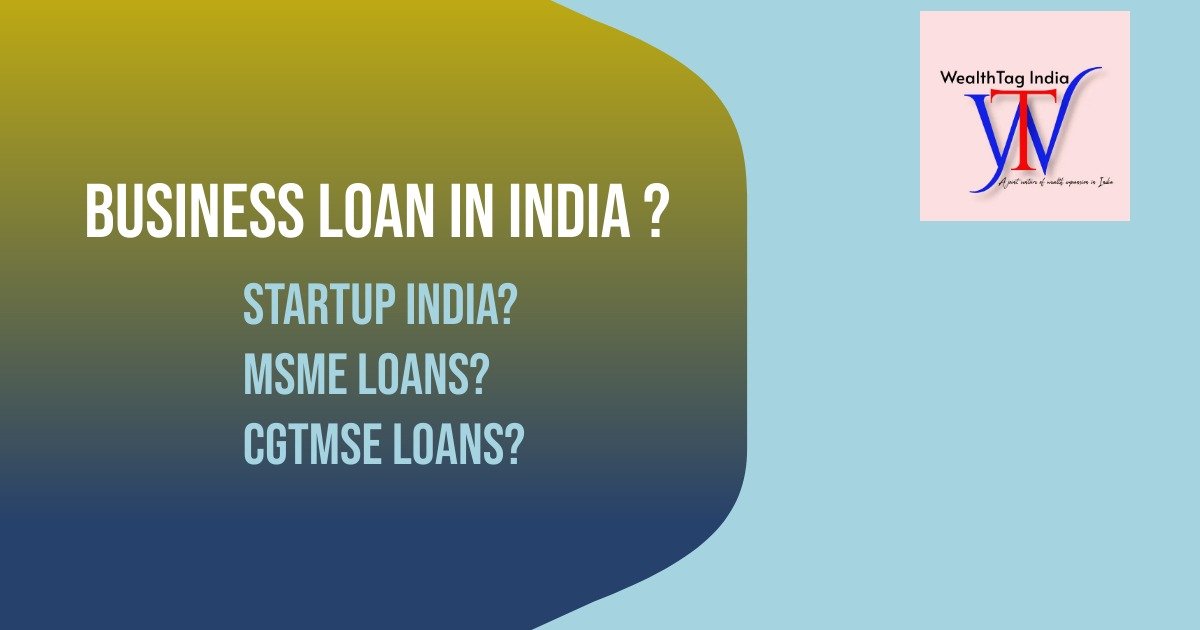OD vs. Term Loan: Understanding the Key Differences
When it comes to financing your business or personal needs, choosing the right loan product is essential. Two common options are the Overdraft (OD) facility and Term Loan. While both provide access to funds, they serve different purposes and come with distinct features. At Wealthtag Consultant, we help you understand the key differences between OD and Term Loans, so you can make an informed decision that best suits your financial requirements.
What is an Overdraft (OD)?
An Overdraft (OD) facility allows you to withdraw more money from your bank account than you have on deposit, up to a pre-approved limit. It is a flexible credit option designed for managing short-term cash flow needs and covering unexpected expenses. The overdraft limit is set by the bank based on your financial history, creditworthiness, and account activity.
Key Features of Overdraft (OD):
Flexible Borrowing: You can withdraw funds as needed, up to your approved limit. This makes it ideal for short-term cash flow management.
Interest on Used Amount Only: You only pay interest on the amount you actually use, not on the entire overdraft limit.
No Fixed Repayment Schedule: There is no fixed repayment schedule, allowing you to repay the borrowed amount at your convenience, as long as you stay within the limit.
Revolving Credit: The overdraft facility is revolving, meaning you can reuse the credit once you repay the borrowed amount.
Higher Interest Rates: OD facilities typically come with higher interest rates compared to term loans, reflecting the flexibility and convenience they offer.
What is a Term Loan?
A Term Loan is a lump-sum loan provided for a specific purpose, such as purchasing equipment, expanding a business, or financing a large project. The loan is repaid over a fixed term, with regular installments that include both principal and interest. Term loans can be either short-term or long-term, depending on the loan amount and repayment period.
Key Features of Term Loan:
Fixed Repayment Schedule: Term loans have a set repayment schedule, with regular monthly or quarterly payments that include both principal and interest.
Lower Interest Rates: Term loans typically offer lower interest rates compared to OD facilities, especially if the loan is secured against collateral.
Higher Loan Amounts: Term loans usually provide access to larger sums of money, making them suitable for significant investments or long-term projects.
Specific Purpose: Term loans are often used for specific purposes, such as capital expenditures, real estate purchases, or business expansions.
Fixed Loan Term: The repayment term is fixed, ranging from a few months to several years, depending on the loan agreement.
OD vs. Term Loan: Which One Should You Choose?
Choosing between an Overdraft (OD) and a Term Loan depends on your financial needs, goals, and circumstances. Here’s a comparison to help you decide:
| Feature | Overdraft (OD) | Term Loan |
|---|---|---|
| Purpose | Short-term cash flow management | Long-term financing for specific needs |
| Repayment Flexibility | Flexible, repay at your convenience | Fixed repayment schedule |
| Interest Rates | Higher, interest on used amount only | Lower, fixed or variable based on loan type |
| Loan Amount | Limited to pre-approved overdraft limit | Higher, based on collateral and creditworthiness |
| Collateral | Generally not required | Often required for lower interest rates |
| Loan Tenure | Revolving, no fixed tenure | Fixed tenure, typically 1-10 years |
| Credit Reusability | Yes, once repaid, credit is available again | No, loan is disbursed in a lump sum and repaid over time |
When to Choose an Overdraft (OD):
- For managing short-term cash flow needs: If you frequently need quick access to funds for daily operational expenses, an OD facility is ideal.
- For flexible repayment options: If you prefer not to be tied to a fixed repayment schedule, an OD allows you to repay as and when you have funds available.
- For smaller, recurring expenses: An OD is well-suited for covering smaller, recurring expenses without having to apply for a new loan each time.
When to Choose a Term Loan:
- For financing specific projects or investments: If you need a large sum of money for a specific purpose, such as purchasing equipment or expanding your business, a term loan is the right choice.
- For predictable repayments: If you prefer the stability of fixed monthly payments, a term loan provides a clear repayment schedule.
- For long-term financial needs: If you require long-term financing with a structured repayment plan, a term loan is the ideal solution.
How Wealthtag Consultant Can Help
At Wealthtag Consultant, we provide expert advice to help you choose the best financial product for your needs. Whether you’re considering an OD facility or a Term Loan, our consultants will assess your financial situation, explain the benefits and drawbacks of each option, and guide you through the application process.
Contact Us
Not sure which loan option is best for you? Contact Wealthtag Consultant today for a free consultation, and let us help you secure the financing solution that best meets your needs.







